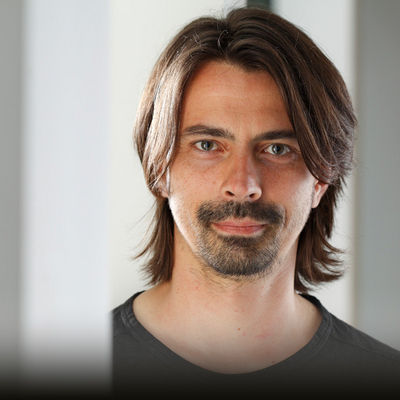Julian König joins the prestigious Heisenberg Programme
Julian König, a Group Leader at the Institute of Molecular Biology (IMB) in Mainz, Germany, has been accepted to join the prestigious Heisenberg Programme of the German Research Foundation (DFG). The position includes approximately €650,000 in funding over 5 years for him to carry out his research on posttranscriptional mechanisms of RNA regulation and how they contribute to ageing and disease.
Julian’s team works to understand the fundamental processes that cells use to control gene expression at the posttranscriptional level, which is important for virtually all cell functions. These mechanisms include mRNA splicing and stability, which are regulated by chemical modifications and regulatory elements on the mRNA, as well as RNA-binding proteins. Together, all these elements form a “molecular code” that determines how much and for how long a gene is expressed.
Posttranscriptional gene regulation is often disrupted in cancers and neurodegenerative diseases such as amyotrophic lateral sclerosis (ALS). For example, mutations in cancer cells may alter the splicing of genes that encode surface antigens, so that the cancer cells can escape detection by cytotoxic T cells. Julian seeks to understand the underlying molecular causes of diseases and ageing by deciphering these RNA regulatory mechanisms in his project, which is titled “Cracking the molecular code of splicing and RNA modifications”. As a member of the Heisenberg Programme, Julian will receive funding from the DFG for his project. Heisenberg positions are given to outstanding researchers in Germany who qualify for a professorship, enabling them to continue carrying out high-quality research.
We warmly congratulate Julian for his achievement and look forward to learning more about his exciting research.
Further details
Julian König is a Group Leader at the Institute of Molecular Biology (IMB) in Mainz. Further information about research in the König lab can be found at www.imb.de/koenig.
About the Institute of Molecular Biology gGmbH
The Institute of Molecular Biology gGmbH (IMB) is a centre of excellence in the life sciences that was established in 2011 on the campus of Johannes Gutenberg University Mainz (JGU). Research at IMB focuses on the cutting-edge fields of epigenetics, genome stability, ageing and RNA biology. The institute is a prime example of successful collaboration between a private foundation and government: The Boehringer Ingelheim Foundation has committed 154 million euros to be disbursed from 2009 until 2027 to cover the operating costs of research at IMB. The State of Rhineland-Palatinate has provided approximately 50 million euros for the construction of a state-of-the-art building and is giving a further 52 million in core funding from 2020 until 2027. For more information about IMB, please visit: www.imb.de.
Boehringer Ingelheim Foundation
The Boehringer Ingelheim Foundation is an independent, non-profit organization that is committed to the promotion of the medical, biological, chemical, and pharmaceutical sciences. It was established in 1977 by Hubertus Liebrecht (1931–1991), a member of the shareholder family of the Boehringer Ingelheim company. Through its funding programmes Plus 3, Exploration Grants and Rise up!, the Foundation supports excellent scientists during critical stages of their careers. It also endows the international Heinrich Wieland Prize, as well as awards for up-and-coming scientists in Germany. In addition, the Foundation funds institutional projects in Germany, such as the Institute of Molecular Biology (IMB) and the European Molecular Biology Laboratory (EMBL) in Heidelberg.
Press contact for further information
Dr Ralf Dahm, Director of Scientific Management
Institute of Molecular Biology gGmbH (IMB), Ackermannweg 4, 55128 Mainz, Germany
Phone: +49 (0) 6131 39 21455, Email: press(at)imb.de
